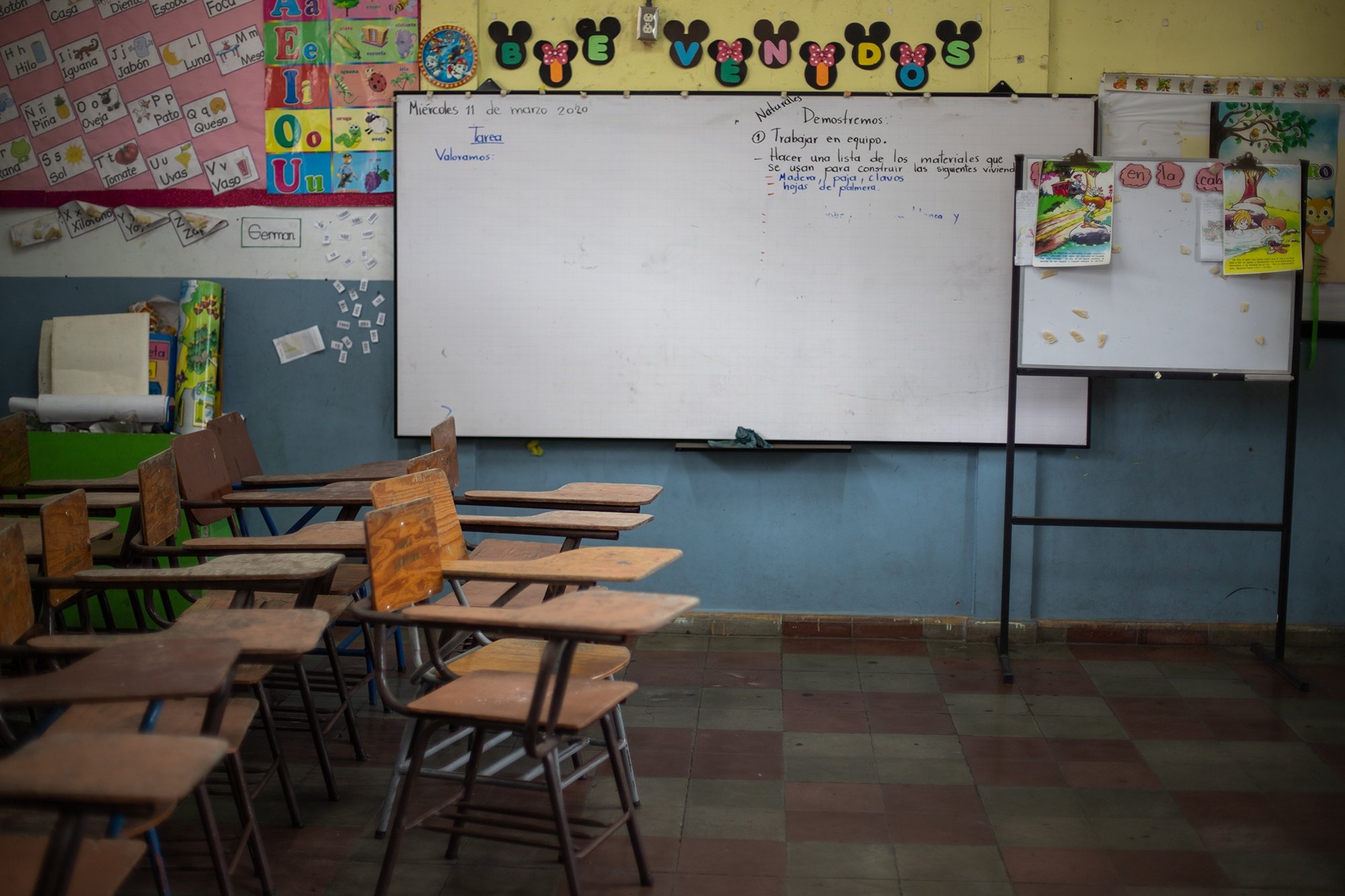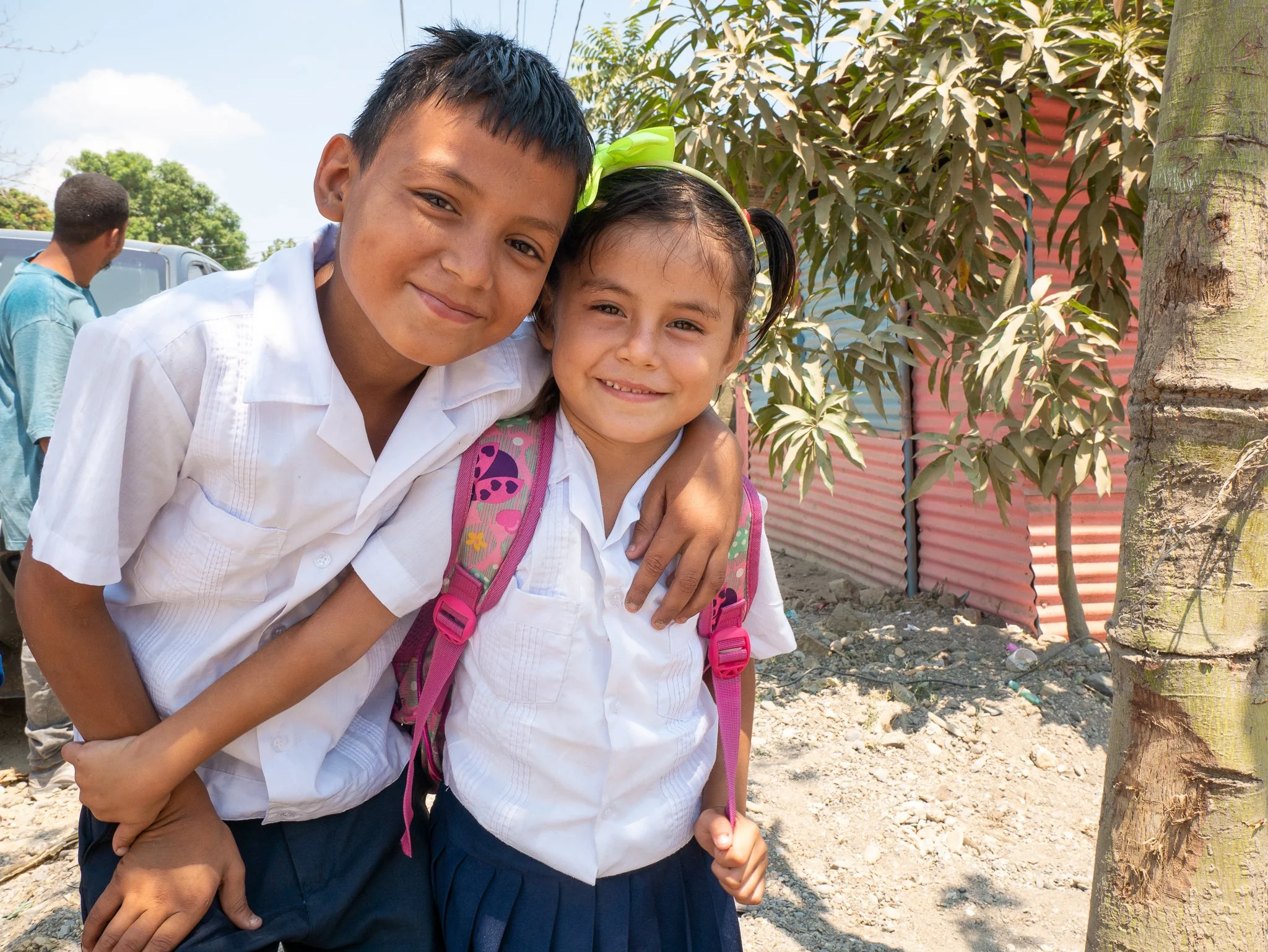How Education Keeps Kids In Orphanages
At this point, you probably know that at Embraced, we believe in family and that every kid deserves a loving family. You also probably know that most of our work is dedicated to reunifying kids who live in orphanages with their families and ensuring that their families are safe places and are empowered and equipped to care for their kids.
Today, we are going to share how often education is one of the obstacles that stands in the way of making it easy for kids to go home to their families.
In Honduras, orphanages almost always offer private education to the kids living there (often, the school is on the orphanage's wall-enclosed property). That means that in most cases, kids in orphanages can get a bilingual education, learning English and Spanish in their private school. (mainly because orphanages are private nonprofits with mostly North American founders).
But, when a kid living in their orphanage has a family who they could return to (and just a reminder, 80% of kids in orphanages do have families), most orphanage directors will contest the child returning home to their family, claiming that the kid is better off at the orphanage than with their family, who wants them.
We've experienced orphanage directors telling the social workers and the biological family that the kid will lose their opportunity for private education in exchange for going home to their family. From the perspective of an orphanage, that's not a fair trade for the kid.
So, rather than offering to pay for a scholarship for the kid to continue to get a private education when they are reunited with their family (which seems like the logical thing to offer if education was really the most important thing), most orphanages say that only if a kid lives in their facility and has limited contact with their family can they receive any benefits of private education.
It is clinically proven that a kid's brain develops healthier, and they absorb information better when they have healthy attachments and connections to their family. In fact, being separated from healthy attachment with an adult can permanently affect the brain's ability to develop and fully function both cognitively and emotionally (if you want to read more research on this, check out this article).
The irony of most orphanage directors protesting that kids are reunified with their families, claiming that kids will lose out on a chance of private education and future opportunities, is clinically proven to be a fallacy because kids growing up with their loving families and getting an education, even if it isn't a private education, will actually lead to better cognitive and emotional development that will be far more essential and lead to more opportunities both personally and professionally than knowing how to speak basic English ever will.
This is why when we evaluate a family's needs, we make sure that the family is going to be able to provide an education for their kids. If the costs are out of reach for them, we support the family with a scholarship and school supplies so that kids can grow up in a family AND get an education. We believe in education but also that a family best accompanies education.
kids in San Pedro Sula who were given an education scholarship through Embraced because of the support of donors to continue their education at their local school near their family's home rather than in an orphanage.
That is why your financial support makes it possible for kids to grow up at home and not miss out on the opportunities that an education provides. If you want to donate towards a kid's education so there is one less obstacle standing in their way of being back with their family, a donation of $100 makes education possible.


